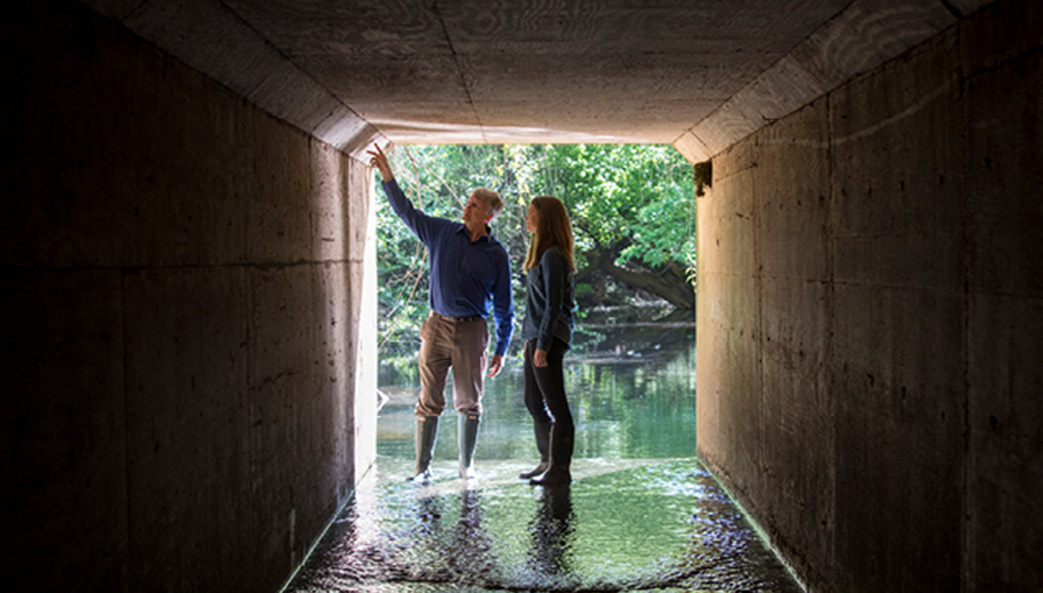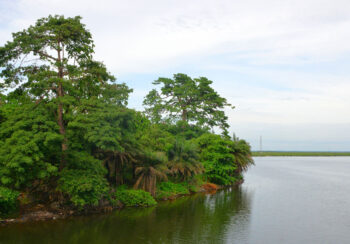The U.S. Army Corps of Engineers and University of Georgia recently announced a partnership that connects the interdisciplinary expertise of UGA’s Institute for Resilient Infrastructure Systems, or IRIS, with the vast on-the-ground experience of USACE’s Engineering With Nature® Initiative to form the Network for Engineering With Nature.
Through this partnership and a new $2.5 million award to UGA from USACE, researchers are expanding and accelerating Engineering With Nature and the practice of natural infrastructure in the public and private sectors.
EWN is an initiative developed by USACE to efficiently and sustainably deliver economic, environmental and social benefits through the use of natural infrastructure. By using a combination of natural and conventional processes and materials, natural infrastructure can protect people, homes and habitats. It comes in many forms and on many scales, including sand dunes engineered to prevent erosion; floodplains along rivers, which allow the river to ebb and flow without flood risk to communities; and coastal wetlands, which filter out pollution and provide habitat.
Sixteen UGA researchers from 10 colleges and departments will apply their expertise to the mission of the Network for Engineering With Nature, or N-EWN. The project leader for UGA is principal investigator Brian Bledsoe, a professor in the College of Engineering, who specializes in resilient infrastructure. The N-EWN partnership will also draw from the expertise of the UGA’s River Basin Center and Center for Integrative Conservation Research. In addition, an equal number of researchers from USACE will add their knowledge and skill to the network, led by Todd Bridges, the EWN National Lead and Jeffrey King, the EWN Deputy National Lead.
“We are delighted to be working closely with USACE’s world class researchers,” said Bledsoe, director of IRIS and Georgia Athletic Association Distinguished Professor in Resilient Infrastructure. “Together, we can take our research on natural infrastructure to the next level and inspire a new generation of engineers and scientists who will reshape the nation’s water resources infrastructure.”
In an ambitious set of pilot projects, the researchers will improve methods for using natural infrastructure to strengthen community resilience, create models and dashboards that allow designers to map out how natural infrastructure can provide more benefits to society, and inspire a new generation of engineers, ecologists and social scientists to utilize natural infrastructure through education and workforce development.
For more information, visit https://n-ewn.org/ or follow the hashtag #N-EWN on Twitter and Instagram.






